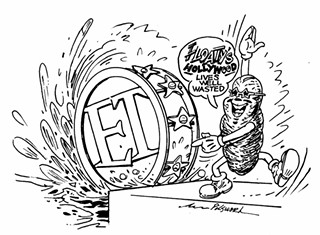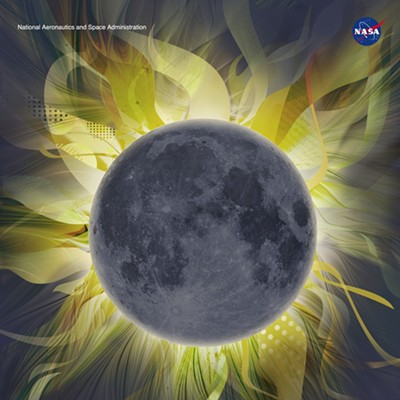Last week turned out to be terrible for "troubled actress" Lindsay Lohan and "foundering pop star" Britney Spears. Lohan got herself arrested (again) on suspicion of drunk driving and cocaine possession while Spears supposedly sat back and watched as her doggie pooped on a $6,700 gown at a publicity photo shoot that was supposed to restore her faltering career. "Poor Lindsay, poor Britney," I cried as Aunt Mabel came rushing in with news that country singer Mindy McCready had just been jailed for violating probation on an old drug charge. "Jesus H. Christmas," I shouted. "What's the world coming to?" My outburst caused my Marxist uncle Phil to peer over the top of his book—The Diana Chronicles by former New Yorker editor Tina Brown—and observe dryly that "celebrity culture is as toxic as it is addictive." He had just been reading a chapter where it says that after her separation from Chas, "the Princess of Wales set about administering her celebrity like a global brand. Her life was now devoted to tending, promoting and conserving the Diana franchise."
Uncle Phil closed his tome, lit his pipe and burped. "Here comes another commie rant," I murmured and sure enough, one came—all about how capitalism turns everything into commodities, including the celebs whose stories fill our computer screens, newspapers, magazines and airwaves. It seems that Marx himself (Karl, not Groucho) dreamed up a concept called "the fetishism of commodities" whereby the products of human labour acquire their own magic just like my elegant iPod Nano, from which I hope never to part. (Well, at least not for a few months until its battery won't recharge.) Stamped on its metal back are the tiny words: "Assembled in China," but it might as well say "manufactured on the moon" as far as I'm concerned. It's the stylish, pencil-thin iPod I care about, not the arthritic Chinese fingers that made it. Which probably wouldn't please Karl Marx, who preached that if we cared to pay attention, everyday commodities like my iPod could tell us a lot about who has power and money and who doesn't. As for me, I'd rather listen to Britney warbling "I'm a Slave 4 U," while the assholes behind me in the bank-machine lineup gawk with envy at my blue Nano.
Needless to say, Uncle Phil doesn't see it my way. He says, for instance, that celebs like Spears and Lohan as products are a lot like my iPod, branded for glamour, but prone to break down. He calls the giant publicity machine that manufactures them "the ferris wheel of shit." The celebs who board the circus wheel rise quickly, but inevitably descend into a sewage lagoon where many fall off and are heard of no more. Only the hardiest or luckiest rise again to bask in the camera's bright glare. "But remember," says Phil, "that wheel is always turning."
"But what does that have to do with Karl Marx?" I ask perplexed. "Well," says Phil. "The ferris wheel is driven by a powerful economic motor that we don't think about because we're so busy watching the rise and fall of celebrities, experiencing their personal stories of triumph and tragedy. That motor is our global capitalist system of buying, selling and consumption. Its fuel is money. And it's greased by advertising, marketing and publicity. We can't see that the glamorous celebrities we're watching are just magnified images of us. Ordinary people really. And we're bound to that wheel along with them. Slaves to it. Around and around we go in empty circles. iPods from China, cameras from Japan, movies and songs from LA. And always that big pool of shit underneath."
"Jesus, Phil," I exclaim. "What a hopeless view of reality!" "Uncle Phil to you, my boy," he replies. "And you're quite right. It is bloody hopeless. Remember that in the Global Village, the tedium is the message."
Any celebrities you think deserve a dip in that big pool of shit? Email: [email protected].
















